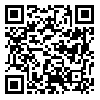BibTeX | RIS | EndNote | Medlars | ProCite | Reference Manager | RefWorks
Send citation to:
URL: http://ijer.hormozgan.ac.ir/article-1-475-en.html
2- Department of Communication Sciences, C.T.B., I.A.U., Tehran, Iran ,
3- Department of Social Communication, S.U. (Int.),Soore University (International), Tehran, Iran
Objective: This study aimed to identify the key challenges and opportunities facing religious preachers in cyberspace and to outline future directions for enhancing their influence and engagement.
Methods: This applied, exploratory–descriptive study employed the Delphi method. The participants included 15 experts and religious preachers familiar with virtual platforms in the first round, and 11 in the second, as consensus was refined. Data were analyzed using means and standard deviations to determine the importance of components and the degree of expert agreement.
Results: Major challenges included the weakening of religious authority and user trust (M = 4.00, SD = 0.70), delayed or unscientific responses to doubts (M = 4.18, SD = 1.30), and rising skepticism toward religious foundations (M ≈ 3.45, SD ≈ 1.13). Moderate challenges involved limited two-way interaction (M ≈ 3.09, SD ≈ 0.83) and weak use of creative and multimedia formats (M = 2.82, SD = 1.11). Key opportunities included effective networking among preachers (M ≈ 4.36, SD = 0.50), enhanced scientific and communicative skills (M = 4.27, SD = 0.83), and audience-based content creation using sentiment analysis (M = 4.00, SD = 0.78).
Conclusion: Future success in digital preaching depends less on technology access and more on interaction quality, scientific engagement, and data-driven communication. Strengthening media literacy and collaboration can significantly improve the effectiveness of religious outreach in cyberspace.
Received: 2025/07/27 | Accepted: 2025/10/11 | Published: 2025/12/1
| Rights and permissions | |
 |
This work is licensed under the Creative Commons - Attribution 4.0 International. |






